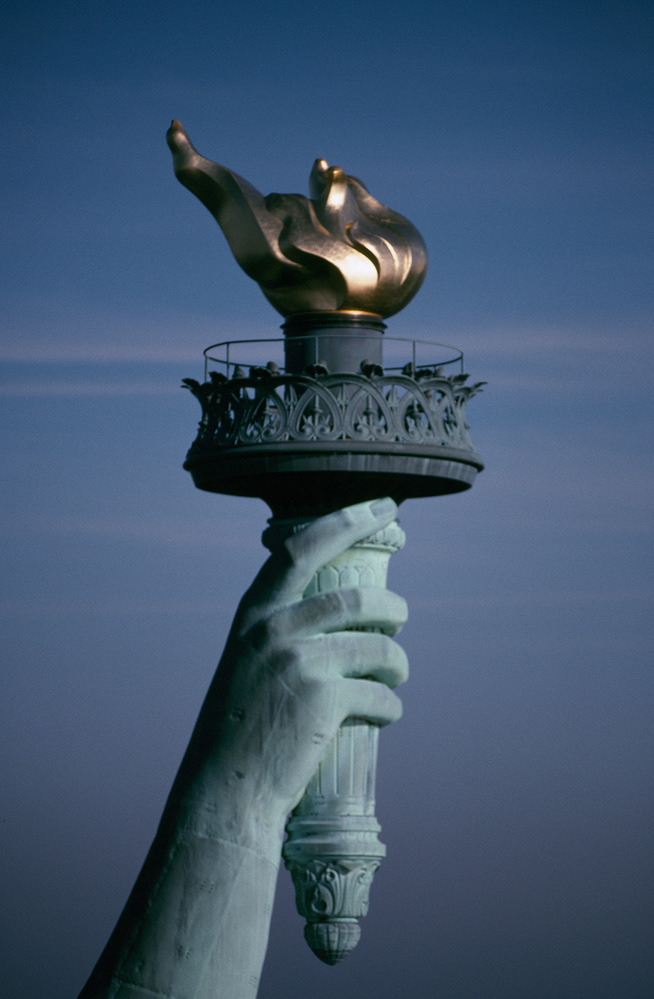
We have become so accustomed to a certain Homeland Security phrase since the events of September 11, 2001, that we have never seriously contemplated its larger meaning. “If you see something, say something,” for most people simply means that, if you notice something strange, someone leaving a package on a train platform and walking away, for instance, you need to call 911 or point it out to a nearby security official. Having done our civic duty, we can go on about our lives and hope for the best. We may save someone’s life, or we may simply be exercising caution. Check it out.
But suppose we interpreted that phrase in the context of our duties as citizens of an endangered, or even potentially endangered, democracy. Suppose the threat were to our democratic institutions and not just to the lives of those in a single public place. Suppose the threat involved policies that affected thousands of people threatened by racism, ignorance, or hatred? Ought we not to speak up? How different would the history of the world have been if millions of Germans had spoken up about what they saw even in 1933? How many Russians in the past two decades have risked their lives and their careers to speak up about the threats they see to a democracy being strangled in its cradle? In the past year, the people of Sudan have arisen against a brutal military dictatorship and forced remarkable changes. Are we Americans somehow so special as to be free from such obligations? Do we not eventually lose our moral authority to speak for democracy in the world if we fail to speak for it at home?
If you see something, say something. Let me tell you what I see:
I see children housed in filthy cages at the southern border by the U.S. government, separated from their parents, their eyes full of fear and bewilderment, when their only alleged crime was to be brought here by parents from Central America who sought to remove them from gang warfare, violence, crime, and corruption in desperately poor countries. I see a U.S. President, as a form of retribution, cutting aid to those countries that was meant to promote reform and economic opportunity to reduce people’s need to flee such chaos in the first place.
I see Temporary Protective Status (TPS) denied to survivors of Hurricane Dorian in the Bahamas, a neighboring country with deep ties to the U.S., even as that nation struggles to rescue and house its own people in the face of mind-numbing devastation. The rationale from the President was that “very bad people” would harm our country if this were allowed, although TPS has been standard practice in the past in the very same circumstances. It is unclear, other than being people of color, what makes the Bahamians especially dangerous in his eyes.
I see neo-Nazis, white supremacists, and Ku Klux Klan members marching and chanting “Jews will not replace us” through the campus of the University of Virginia and the streets of Charlottesville, defended ardently by a President who sees “very fine people” on both sides while an innocent young woman is run over and killed by a young Nazi sympathizer with his car. I see this rhetoric emboldening an ever-widening circle of mass shooters who sow terror in American cities with unlimited access to weapons of war, but I also see a widening circle of brave citizens rising to demand effective action against such terror.
I see America losing the moral courage of the Emma Lazarus poem at the Statue of Liberty, pleading for the world to “give me your tired, your poor, your huddled masses yearning to breathe free,” and nearly mocking Lady Liberty as she seeks to lift her lamp beside the golden door. The Golden Door is becoming instead the Great Border Wall built with money never legitimately appropriated by Congress, and members of the President’s own party unable and unwilling to stop him or even raise the weakest of objections lest they be expelled from the halls of power—or are they becoming halls of obeisance, like the Roman Senate in Nero’s time?
I am telling you what I see because I understand the moral and civic obligation to say something. We must all be whistleblowers for the future of democracy. What do you see? Are you prepared to say something as well? And what shall we do once we have spoken?
Jim Schwab